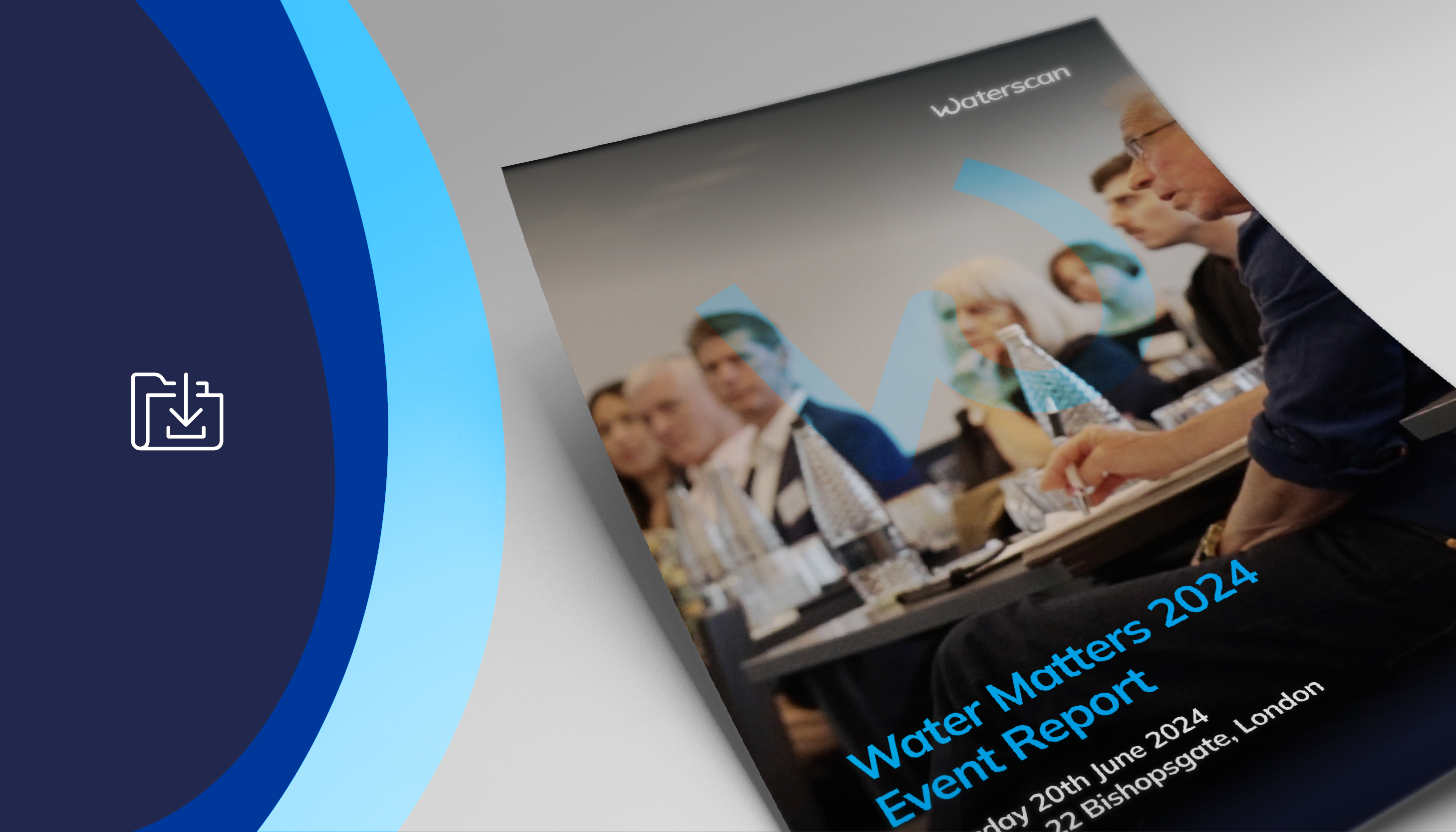Every five years, the UK’s 16 water companies have a statutory duty to produce a Water Resources Management Plan (WRMP).
In these Plans, they must set out how they intend to balance supply and demand to provide a high quality, resilient supply of services, and to protect natural environments while doing so, over at least the next 25 years.

Drafts of the latest Plans (WRMP24) were published last winter for consultation and should be finalised between winter 2023 and summer 2024. This planning cycle is particularly important because the water companies must demonstrate how they will meet the targets set out in Defra’s Plan for Water (published in April 2023), such as halving (2018-19) leakage rates by 2050.
WRMPs provide valuable insights and data sources to enhance our water strategy work for customers, and so responding to consultations on these draft Plans was an important priority for the Waterscan team over the spring.
Reflections
Reflecting on this process, however, it’s fair to say that responding to 16 enormous draft Plans will have been a daunting prospect for the majority of stakeholders. Both the main documents and many of the summary documents were extremely long, dense, and at times impenetrable. While understandable to an extent given the complexity and magnitude of challenges the Plans are grappling with, they do not make for light reading. This could well have created a barrier to wide-ranging stakeholder engagement, which is a key reason for producing drafts in the first place.
For the Waterscan analysts and strategists reviewing the Plans on behalf of water customers, it was crucial to develop a consistent methodology that would allow us to navigate the complexity and focus on key impact areas. These were: the intensity of forecasted water deficit risk, plans for demand management interventions like smart metering, ambition for partnerships and nature-based solutions, and ideas around water neutrality.
The core themes of our consultation responses are summarised below, expressing the general view that water companies could do much more to alleviate the increasing strain on water resources and environments and to rebuild trust in the industry.
Our concerns centre on (1) the lack of ambition, (2) the lack of focus on the non-household market, (3) the lack of clarity on smart meter data availability, and (4) the lack of transparency and accountability over pollution incidents.
- Most of the draft Plans cited national targets, but it was not made clear why water companies could not go further and faster than these minimum standards. In many cases, for example, just halving current leakage rates will still result in unacceptably high wastage. We need more justification around why these targets were chosen and, preferably, evidence of greater ambition.
- Business customers consume roughly 30% of the available public water in England, meaning that they have a responsibility, and the ability, to improve water efficiency. Yet the non-household market was consistently side-lined in the draft Plans, which tended to focus on per capita consumption (PCC) targets (which apply to domestic customers). This is not only a huge missed opportunity but is also now inconsistent with Defra’s Environmental Improvement Plan 2023, which explicitly signposts the non-household water market, calling for businesses to reduce water use by 9% by 2038 and 15% by 2050. We also noted little evidence of willingness to collaborate with water retailers, including organisations that Self-Supply, a gap that we advise should be addressed in the final Plans. This will enable water companies to concentrate on fundamental goals like leakage reduction, net zero, and eradicating pollution incidents.
- We have many unanswered questions around access to data. The extension of smart metering technology will dramatically enhance the collection of much more granular data, but how accessible will this data be to the whole market? What kinds of data will be shared, how, from when, and at what cost? We encourage open-source data, but as a minimum it should be available to water retailers, business customers, and sustainability practitioners. Moving from observation to action is key for longer term systemic changes in attitudes towards water consumption management.
- Water companies must be held accountable for pollution and sewage discharge events, a key performance failing that is causing high profile public dissatisfaction in the water industry. For trust to be restored, pollution events must be urgently reduced to as close to zero as soon as possible so that they become the exception, not the norm. At the same time, the necessary remedial measures should not lead to an increased financial burden on customers through higher water bills.
Looking ahead
The water companies will publish their final WRMPs after analysing consultation feedback and working with organisations like Ofwat, Defra, and Natural England. During this period, we urge all parties to work to strengthen and further specify the Plans, particularly in terms of the non-household market.
It is essential for the final Plans to be sufficiently ambitious, open, holistic, and collaborative to produce meaningful change. The alternative – to allow the current culture of inefficient, uninspiring performance to seep into another planning cycle – would be extremely disappointing, particularly for the companies that are already pushing further, innovating, and achieving results.




